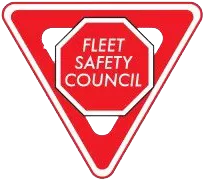Driving a bus can be a demanding and stressful job, and the need for bus drivers to maintain good health has never been greater. While the COVID-19 pandemic has forced the transportation industry to put enhanced cleaning and safety protocols in place, professional bus drivers face challenges that can take a toll on their health at any time, let alone during a worldwide crisis that puts both drivers and their customers at risk.
Al Smith, Greyhound’s corporate director of safety and security, knows about the health issues facing drivers from personal experience; he drove for Greyhound for a decade. “I did a lot of eating at McDonald’s and choking down food,” he recalls. Since Greyhound began partnering with Bob’s Driver Health coaching—a program developed to help drivers pass the Department of Transportation Medical Exam and Commercial Motor Vehicle Certification—more than 1,500 of its drivers have participated. The program helps drivers extend their DOT cards, leading to greater driver retention. “And for a smaller company, it’s almost a greater value than it is for Greyhound,” says Smith, “because it can often be much harder for smaller operators to recruit and retain quality drivers.”
Five Steps to Driver Health
The following five steps will help bus drivers stay physically and mentally healthy enough to face the rigors of the road.
1. Get quality sleep. As your shift winds down, start to prepare your mind and body for a good night’s sleep. Avoid heavy or spicy meals and stop drinking caffeine at least three hours before bedtime. Avoid nicotine and other stimulants that can disturb sleep, including light from electronics.
2. Eat your fruits and veggies. Good nutrition is the No. 1 key to maintaining your health. Just like you put fuel in your bus, you need to put fuel—healthy food—in your body. Sure, fast food is convenient and cheap, but it also causes unwanted weight gain and health issues. Start by making good nutritional decisions at least 50 percent of the time; taking small steps can lead to big results.
3. Take a walk. Exercise is essential not only for maintaining a healthy weight, but also in supporting biometric levels. You don’t have to be a triathlete or marathon runner to see results. Even walking one mile a day will burn calories, lower stress, and increase your energy level.
4. Practice personal hygiene. Drivers interact with the public all day, so be sure to wash your hands frequently and use hand sanitizer when washing isn’t possible. For recommendations on enhanced cleaning and safety protocols, see ABA’s report, “The Way Forward,” at busesmoveamerica.com.
5. Take time to breathe. Taking care of your mental health is like taking care of the controls on your bus. Like bus maintenance, your own wiring system needs a tuneup now and then. This can be as simple as taking a walk, talking to a friend, or taking five minutes to breathe deeply. Be sure to fill your chest completely with air and then blow it out in a controlled breath that spans at least four to five seconds. This practice actually slows a racing heart and helps people feel more in control.



















